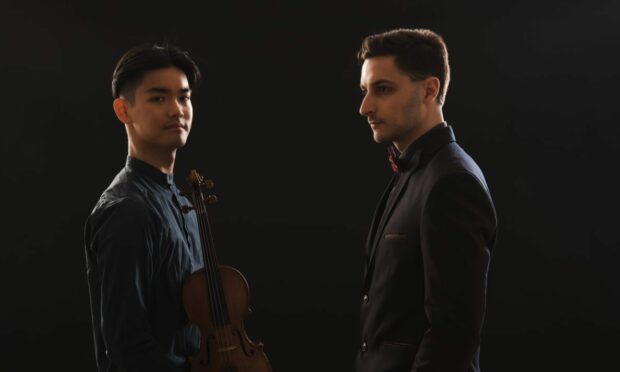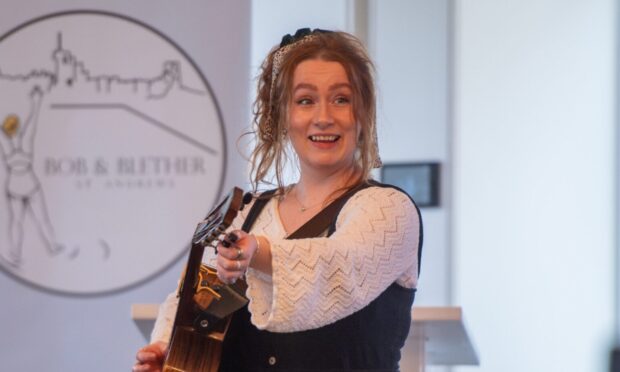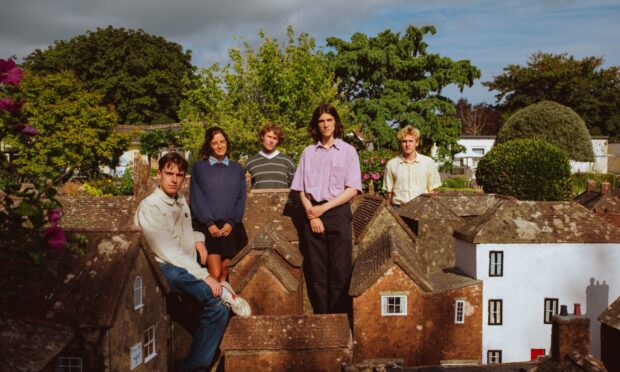Although only a week had passed since the previous Chamber Music concert in the Marryat Hall, that did not affect audience numbers for the Perseus Duo on Tuesday evening.
The Perseus Duo have been making a six date tour of Scotland thanks to their Tunnell Trust Award, and it must be said straight away that we are very lucky indeed to have heard such musicianship in Dundee, with Crieff also benefiting on Burns’ Night.
Brilliant young players
The two brilliant young players met up while studying in London, at the Royal Academy of Music, and have developed into a brilliant partnership – violinist Anthony Poon, originally from Hong Kong, and Bulgarian-born pianist Galin Ganchev.
Their programme was hugely demanding and very entertaining, greeted with delight by the enthusiastic audience.
There were six items, highly contrasted, though the order initially planned seemed oddly balanced.
Fortunately they adjusted things so that the brief ‘lollipops’ were left to the end, after the larger items.
The opener was the work most likely to have been familiar – the single movement scherzo that Brahms contributed to a composite work for the great violinist Joachim.
Rousing style
His mentor Schumann was the driving force behind it, but even at the age of twenty, the Brahms fingerprints are unmistakable. This began the evening in rousing style.
If Richard Strauss is associated in any way with chamber music, it is surely most likely to be through one of his ‘golden sunset’ masterpieces.
This is the string sextet that opens his final opera ”Capriccio”. – warm, mellow and charming. His Violin Sonata was composed half a century earlier and could not have been more different.
Right from the off it is filled with dramatic writing for both instruments, with the soaring violin tone reminiscent of the early orchestral tone poems that made his reputation.
Powerful, effortless
Both players’ contribution was highly powerful, with seemingly effortless thunderclaps from the keyboard.
Francis Poulenc’s most popular works tend to be highly lyrical, with sometimes a sense of brittleness, even frivolity.
However throughout his career he was perfectly capable of writing serious stuff, and if there was an appropriate occasion for this it was surely Paris in 1943, during the German occupation.
As if that were not enough, he was clearly challenged by his violinist, the great Ginette Neveu. How many other works could he have composed for her, but for her death in a plane crash soon after the war.
Extrovert work
This wonderful extrovert work shows Poulenc able to challenge Shostakovich in his ability to alternate spiky drama with glorious lyricism, almost with a hint of that earlier Russian, Rimsky-Korsakov.
It looks as though following her centenary, Lili Boulanger’s output will become accepted into the repertoire. This Nocturne was a charming discovery.
It was followed by a rare piece by a Bulgarian composer, Pancho Vladigerov, born 1899.
His Bulgarian Suite was composed early, and certainly indicates his output is worth exploring..The folk-inspired Song movement has luscious violin writing comparable to the Polish genius Karol Szymanowski, with a similar tang of the orient.
The programme ended with a crazy Caprice by Saint-Saens, to which the great virtuoso Ysaye added some extra twiddles to end a delightful concert.











